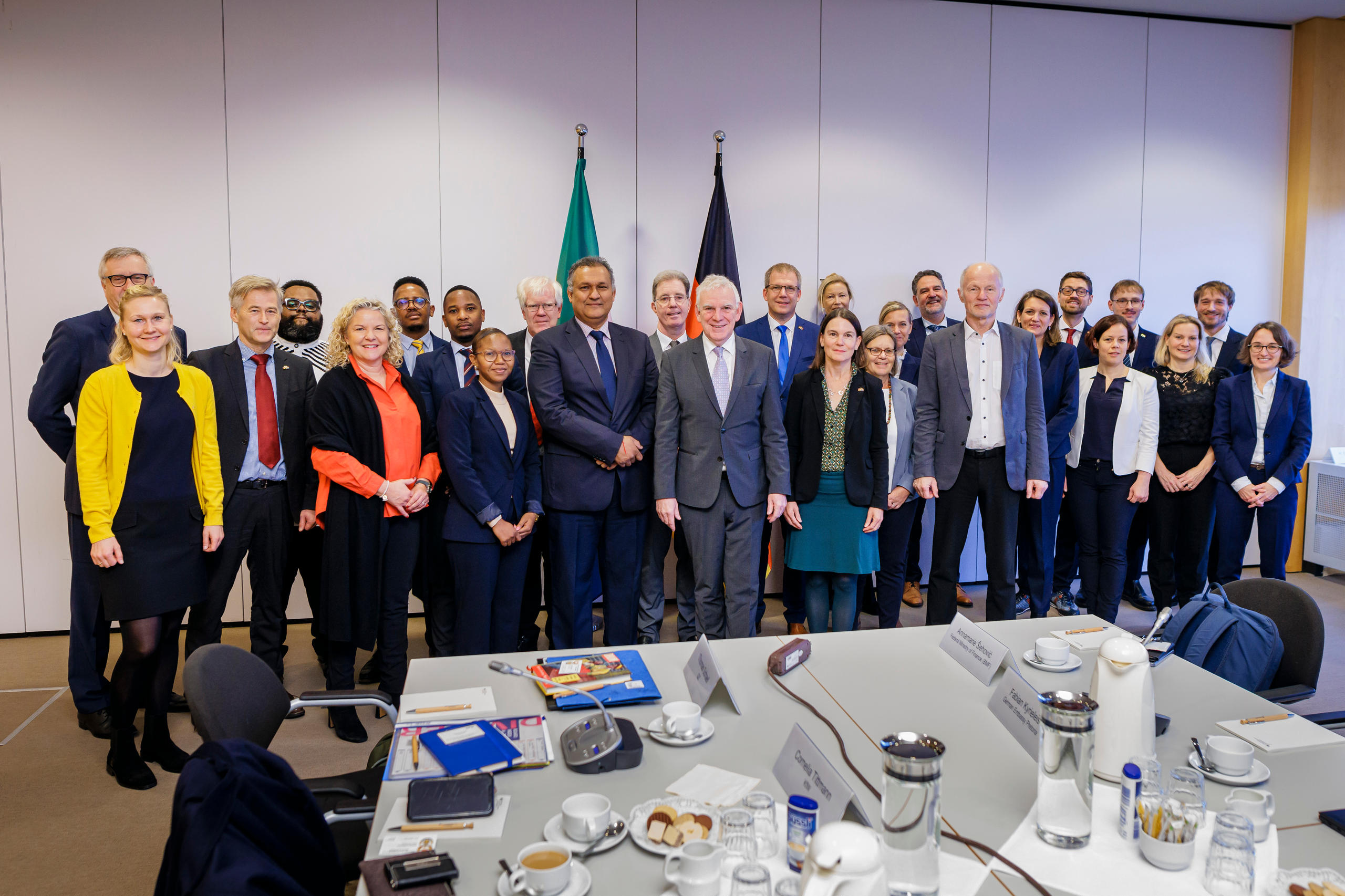Group photo of the delegations at the government negotiations with South Africa in Berlin in November 2024
Copyright© Thomas Imo/phtothek.net
Government negotiations Germany remains important partner for South Africa’s socially just energy transition
State Secretary Jochen Flasbarth said, “Since the end of apartheid 30 years ago, South Africa has been a close partner of German development cooperation. Valuable trust has grown over the last three decades. South Africa has advanced enormously in recent years – moving away from coal and towards wind and solar power. Germany is supporting this transition by, for example, training much needed crafts and trades specialists for the energy transition. The new coalition government is picking up the process where the previous government left off. Together with our international partners, we will support these efforts.”
Germany is supporting South Africa together with the other G7 countries under the Just Energy Transition Partnership (JETP) in effecting a socially just energy transition. This is rooted in the understanding that climate change and its consequences can only be halted if major greenhouse gas emitters in the Global South such as South Africa are successfully stimulated to transition to renewable energies. At present, roughly 90 per cent of South Africa’s electricity still comes from inefficient coal-fired power plants. With the experience gained in its energy transition, Germany provided advisory services to South Africa as a JETP partner on important reforms in favour of climate protection and on the energy market. These have started to result in measurable progress. The number of solar roof systems with more than six Gigawatts has more than doubled in the last two years.
At the same time, the energy transition is creating new jobs because it is significantly increasing the demand for well-trained skilled workers to drive the expansion of renewable energy – installers, technicians and electricians. This means that the energy transition can also contribute to reducing social inequality – a challenge that many South African industrial centres are facing. Germany is supporting the training of young South Africans, for instance by promoting vocational and technical schools, reskilling vocational school teachers in trades which are especially needed for the energy transition.
At the government negotiations, Germany pledged a total of 276 million euros for South Africa – 200 million euros in the form of repayable loans for the energy transition and 76 million euros as grants for fighting corruption, promoting measures to prevent violence, in particular against women, and strengthening vaccine production in South Africa.


